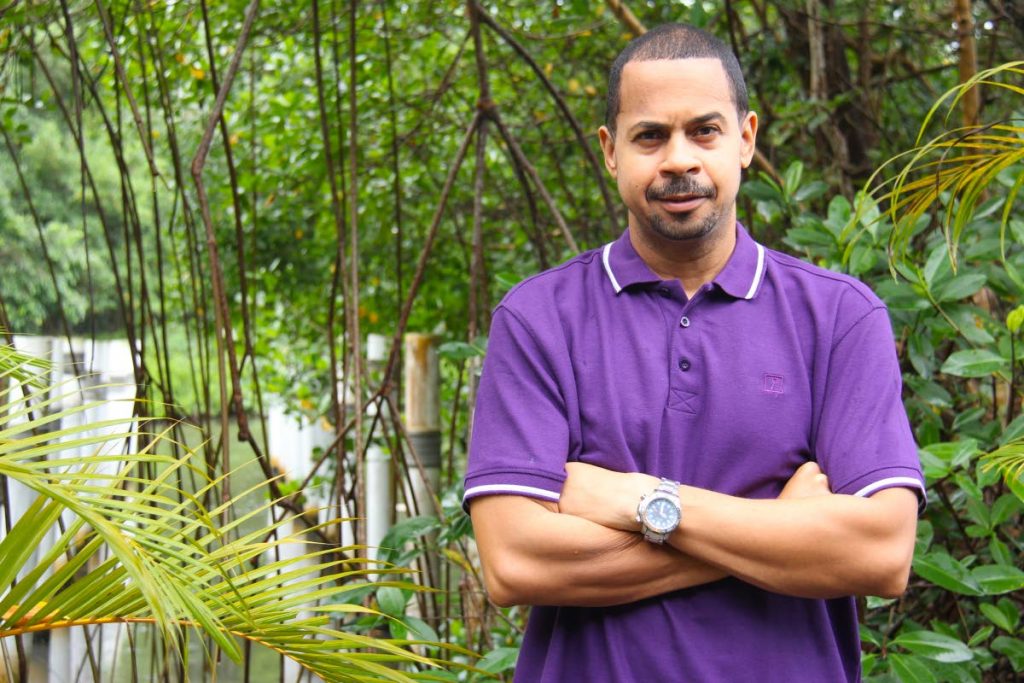Spit out that pastelle

CURRENT estimates of the migrant population suggest there may be 40,000 Venezuelans in TT. A recently circulated vice report suggests the figure could be as high as 60,000. It also portrayed us as ignoring our refugee problem.
As the Government moves, albeit belatedly, to get a grip on the actual number of refugees and open opportunities for temporary employment, this is cold comfort for our xenophobe tribes.
Many still perceive the influx of Venezuelans as the greatest existential threat ever to confront this country. They’re bringing disease, crime, and young women with amplified assets who are all too voluptuous for village life. But if religion is the opiate of the masses, ignorance is the molly of the mollycoddled mind.
The fact is Venezuelans have been coming here from the time this country was a colicky colonial infant. People from the mainland were still settling here after the British took control of Trinidad. Many were escaping the fallout of the Bolivarian revolution in Venezuela.
“Coco Panyols” worked the cocoa estates, giving rise, in considerable measure, to the communities of Caura and Lopinot as we know them today. Furthermore, they seeded this country with elements of their culture, flavouring the diversity we treasure and work so hard to turn our backs on.
What would Christmas be without pastelles? Well, the inspiration for pastelles invaded this country along with those bloody Vennies. So instead of savoury pastelles, next time choke on some holiday hops bread. While you’re at it, forget about parang. Without the influence of our South American neighbours, there would be no Daisy Voisin, Scrunter or Chinee parang. OK, well the last one there is a brand of folksy racism we could have done without.
Parang, pastelles, cachapas – just a few products of the cross-border pollination of cultures. How many of us know that a variant of Trinidad Patois is spoken in Guiria, Venezuela? Calypso and steel pan have been transplanted there as well. Yet we proudly drape ourselves in parochial attitudes about immigrants. If they’re not here to steal our mandem they’re out to steal our jobs.
Let’s talk about that for a moment. What jobs are these interlopers stealing? Are they storming agricultural lands and yanking rakes from the hands of willing Trini farm workers? Are they hoovering up spots in the grocery-shelf-stacking industry? Does an army of ironers, cleaners and nurses besiege us? If we’re honest, the majority of jobs taken by Venezuelan migrants are the ones Trinis don’t want.
Venezuelan migrants are helping some small businesses plagued with a high staff turnover to stay afloat. Many local workers have a dreadful attitude towards tasks perceived as menial. Consequently, they don’t last.
One shop I visit frequently was stricken with disappearing worker syndrome. As such, the owner struggled with two small businesses. The last time I visited her store there was a brand new Venezuelan on the floor smiling as if her life depended on it.
Can we talk about the customer service of the Venezuelan transplants? These people behave as though they make a direct connection between the prosperity of the business that employs them and the stability of their jobs. This has certainly been my experience. Pleasant, helpful and effusive of gratitude; these attributes are quite foreign to most Trinidadians in the service sector.
Many small restaurants needing to start their meal prep in the wee hours of the morning are able to get staff they can count on. In the sphere of agriculture, if Venezuelans are allowed to work on farmland as part of a formal, regulated farming programme they can help boost our food security and the agri-sector.
For Venezuelan refugees with professional training and skills, can’t they be offered special work visas to boost diversification in non-oil sectors like IT, financial services, manufacturing, and agro-processing?
Of course, there’s the risk of exploitation of immigrant labour. However, the system can be inoculated against skullduggery by enforcing a robust immigrant policy that shields worthy refugees from parasitic employers.
Look, no one is suggesting we send Tattoo and Mr Roark from Fantasy Island to illegal ports of entry with garlands and keys to HDC houses. An end to Venezuela’s troubles is nowhere in sight. As we grumble on Facebook, there are probably platoons of Vennies knee deep in the frothy surf of Cedros and elsewhere making their landings. If they are coming anyway, it just makes sense that we adopt a policy to both protect and help them and ourselves.

Comments
"Spit out that pastelle"